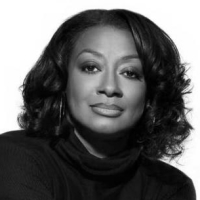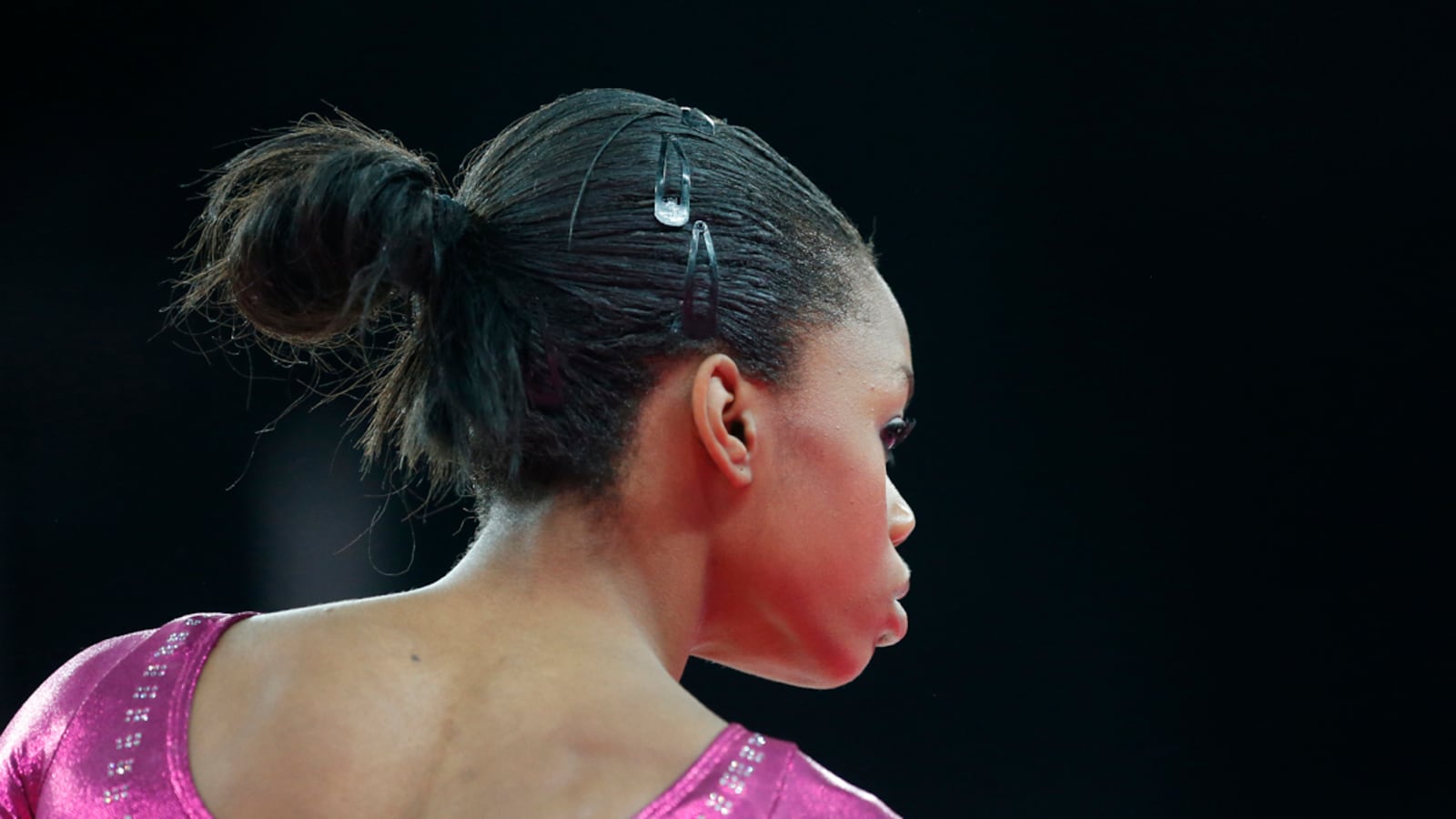
As American teen gymnast Gabby Douglas continues to wow the world with her grace, style, and growing collection of gold medals, an unfortunate backlash is making the rounds. Various social-media sites and platforms have begun to chastise the new sports darling for, of all things, the upkeep of her hair.
Douglas’s unique and inspiring story—she’s one of the few African-American gymnasts ever to compete in the Olympic Games and the first black woman to take the all-around individual title—has helped her capture the covers of Time and Sports Illustrated. Even President Obama called her to congratulate her on her gold medals. But on social-media outlets such as Twitter and several black blogs, it’s her ponytail, and not her dominance at the London Games, that seems to have become the focal point.
“I love how she’s doing her thing and winning,’’ says 22-year-old Latisha Jenkins of Detroit told The Daily Beast. “But I just hate the way her hair looks with all those pins and gel. I wish someone could have helped her make it look better since she’s being seen all over the world. She representing for black women everywhere.’’
The 4-foot-11 Douglas appears to have chemically relaxed natural hair, to which she has added a human-hair ponytail for height. She apparently then slicks her hair back with a heavy layer of gel to encourage it to stay in place during her high-energy performances.
Hair is always a sore spot for black women culturally, but it has often reached a fever pitch when it involves women of color engaging in sports and other demanding physical activities. Gold-medal-winning track star Wilma Rudolph rocked a frizzy short perm during the 1960 Rome Olympics, while Flo Jo began her Olympic journey with a cropped cut layered perm on the track. By the 1984 Games in Los Angeles, the iconic late track star progressed to a flowing mane of hair extensions and even longer fingernails that became her trademark. Venus and Serena Williams have worn beaded braids on the tennis courts for years and faced critical commentary about their looks as a result.
“That why I don’t read the blogs,’’ Venus Williams told Newsweek this year. “You won’t want to get out of the bed if you read what everyone says about you.’’
The texture of black and African-American hair varies, and extreme heat and sweat can cause the strands to revert to their natural state. Natural hair can be difficult to maintain and usually runs in sharp contrast with traditional society’s idea of beauty.
“Black women can’t win for losing,’’ says Nina Barnes, a 25-year-old semi-pro on the tennis circuit who says she’s struggled with her own hair issues while playing. “You’re out there to compete and prove you have this amazing talent. You do what you can with your hair but it’s not something you worry about too much. You can’t.’’ Barnes, of Las Vegas, says she’s tried several different hairstyles with her medium-length tresses while playing before deciding to just get braids.
“I don’t like myself in braids, but it keeps the hair out of my face while I’m playing,’’ says Barnes. “I’m sure braids would be too heavy for Gabby doing what she does. There aren’t many options for a black woman with their hair doing that kind of sport. And let’s be clear—even if she cut her hair off and went bald, black people wouldn’t be satisfied. They’d call her ugly and say she looks like a man. I think she looks fine and is doing what she needs to so she can win. ‘’
Damone Roberts, who’s styled the likes of Beyoncé and Madonna, says he’s outraged by the complaints and negative talk about Gabby.
“People need to find something else to criticize,’’ Roberts says. “She’s a teenager who, God forbid, spends more time on her craft than she does her hair. While those people complaining are hiding behind their computers, Gabby is counting her gold medals, balancing her checkbook from all the endorsement deals coming her way.’’
Still, celebrity hairstylist Larry Simms says he applauds Douglas’s accomplishments in London, but adds that he understands full well how and why the conversation turned to the teenager’s physical appearance and upkeep.
“It’s taboo culturally to be seen in public with a kinky hairline and your ponytail is straight,” says Simms, who styles Mary J. Blige and Gabrielle Union. “The textures don’t match her own hair and the added-on hair and that’s a problem. I think black girls in particular view her as a representation of themselves for the world to see. She just needs some Smooth and Shine gel and she’d be OK.’’
But will she?
“I can’t imagine winning all she has and then reading headlines about how bad your hair looks,’’ said 16-year old Lisa J. Floyd of Los Angeles. “I’m the same age and I’d be somewhere crying if I read that about myself. I hope she stands strong and just ignores it.’’






